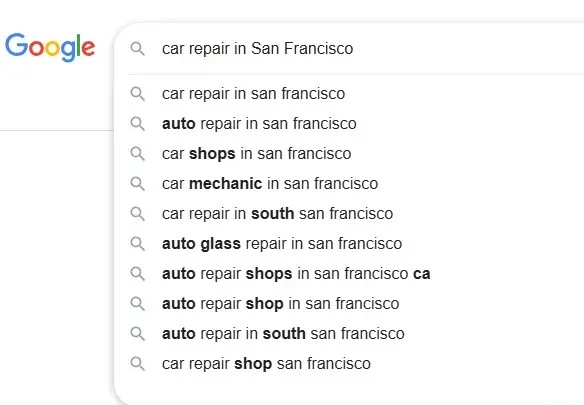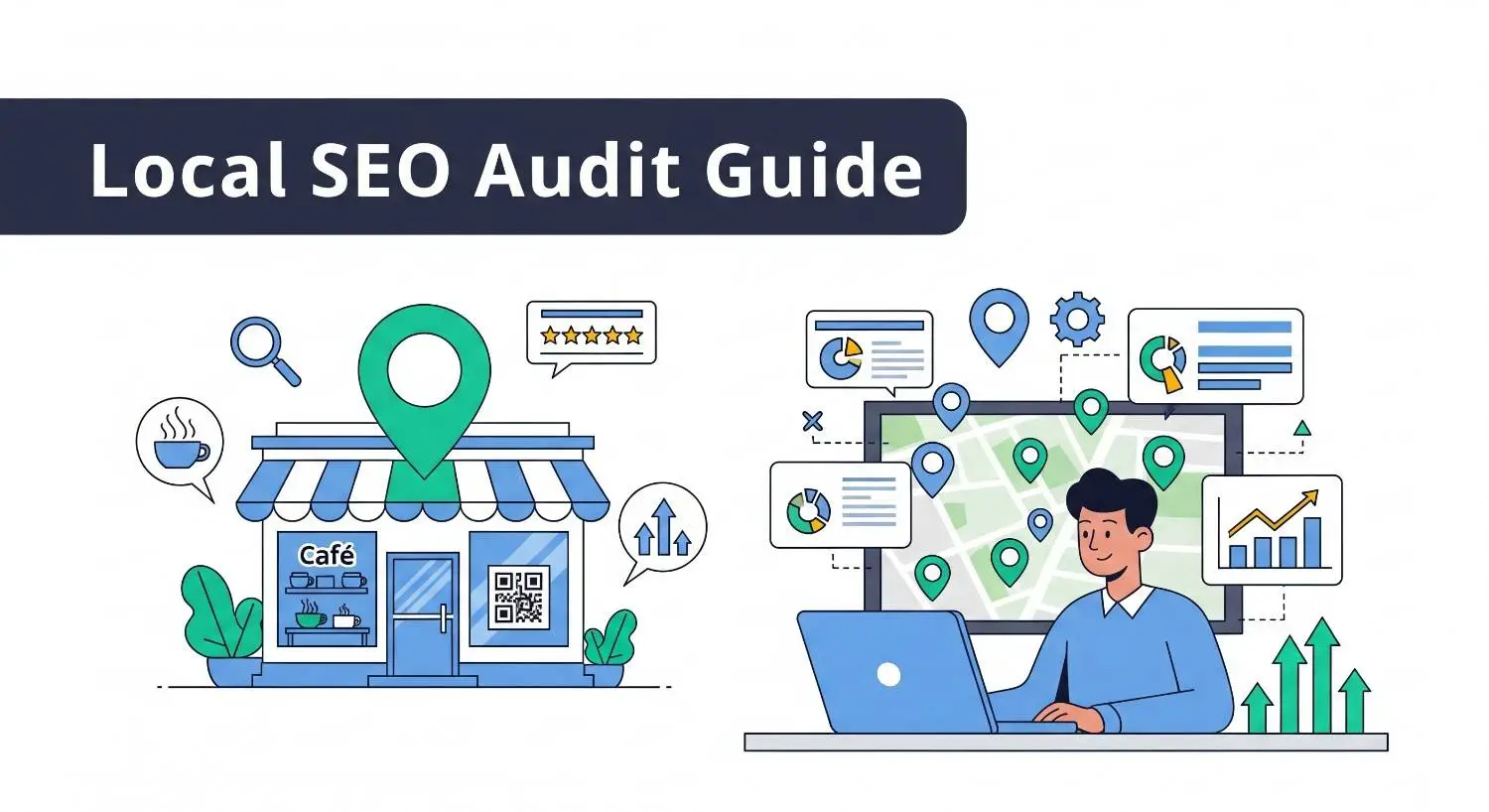
How to Do Local Keyword Research Like a Pro
Local keyword research is a critical component of any effective local SEO strategy. It involves identifying and analyzing keywords that potential customers in your area use to find products or services similar to what you offer. By targeting these local keywords, businesses can improve their visibility in search engine results, attract more foot traffic, and ultimately increase sales.
What Is Local Keyword Research?
Local keyword research is all about figuring out what people in your area are actually typing into Google when they’re looking for the products or services you offer. Local keyword research is different from general keyword research. Instead of looking for popular search terms used everywhere, it focuses on what people are searching for in your specific area. This includes keywords with city names, neighborhoods, or nearby places. When you understand how people in your area search, you can create content that helps them find your business more easily.
Why Local Keyword Research Is Essential for Local SEO
The significance of local keyword research cannot be overstated. As consumers increasingly rely on the internet to discover nearby businesses, optimizing for local searches has become vital for attracting local customers. Search engines like Google prioritize local results when users include location-specific terms in their queries.
By employing local keyword research, businesses can ensure that their website appears in relevant searches, leading to higher click-through rates and improved engagement with potential customers. Moreover, this targeted approach helps to create a stronger connection between businesses and their communities, fostering trust and loyalty among local clientele.
Local Keywords vs. Location-Based Keywords: What’s the Difference?
Understanding the distinction between local keywords and location-based keywords is crucial for an effective keyword strategy. Local keywords typically refer to terms that are inherently tied to a specific location, such as "best pizza in Brooklyn" or "affordable plumbing services in Seattle." These keywords reflect a clear intention by the user to find services within a defined geographical area.
On the other hand, location-based keywords may include broader terms augmented by geographic modifiers. For instance, a business might target the phrase "coffee shop near me," which is not specifically mentioning a location but implies a desire for proximity. Both types of keywords are valuable; however, local keywords often yield better results for small businesses aiming to attract a local audience.
Step 1: Identify Your Core Services and Products
The first step in conducting local keyword research is to identify your core services and products. Consider what offerings define your business and what problems they solve for customers. Make a comprehensive list of these services and categorize them accordingly. For example, if you own a landscaping company, your services may include lawn maintenance, tree trimming, and garden design.
Next, think about how customers describe these services. Create variations and synonyms for each service term. This initial brainstorming will serve as a foundation for your local keyword research, guiding your exploration of how those services relate to local searches.
Step 2: Add Geographic Modifiers (Cities, Areas, Zip Codes)
Once you've identified your core services, it's time to enhance your keyword list by adding geographic modifiers. This means integrating location-specific terms into your existing keywords. Start with larger geographic areas like cities or counties where you operate, then drill down to neighborhoods or even zip codes for a more targeted approach.
For example, if you run a car repair shop in San Francisco, your keywords won’t just be “car repair.” Instead, you’ll want to target more specific phrases like “car repair San Francisco” or “auto mechanics in the Mission District” — the exact terms locals are likely searching for.

Step 3: Use Tools to Discover Local Search Terms
To refine your local keyword list further, leverage keyword research tools designed to uncover search volume and competition levels for various terms. Platforms like Google Keyword Planner, Ahrefs, SEMrush, and Moz can provide valuable insights into what keywords are currently trending in your locality.
Start by entering your identified keywords and observing the suggested variations, including long-tail keywords that may not have initially come to mind. Pay close attention to metrics such as search volume, competition, and trends over time to determine which keywords might bring the best return on investment. Additionally, local search platforms like Google My Business and Yelp can offer information about common queries that lead users to businesses like yours, helping you to adapt your strategy effectively.
Step 4: Analyze Competitor Keywords in Your Area**
The first step in refining your local keyword strategy is to analyze the keywords that competitors are ranking for in your specific area. Begin by identifying your main competitors—these may be direct competitors or other businesses serving similar clientele in your region. Use tools such as GMB Radar to explore which keywords they rank for.
Pay attention to both organic search rankings and paid advertisements, as these often highlight the keywords competitors consider most valuable. Take note of the keywords with significant search volumes and those that lead to higher engagement on their sites. This analysis provides insights into opportunities you might not have previously considered, as well as potential gaps in their strategies that you can exploit.
Step 5: Focus on Long-Tail and Hyperlocal Keywords
Once you’ve identified relevant competitor keywords, it’s time to delve into long-tail and hyperlocal keywords. Long-tail keywords typically consist of three or more words and tend to have lower competition than shorter keywords while still capturing specific search intents. For instance, instead of focusing solely on "pizza," consider phrases like "best vegan pizza in downtown Springfield."
Hyperlocal keywords further narrow down the search focus by incorporating neighborhood names, street names, or landmarks. Using hyperlocal terms allows your business to connect with a highly targeted audience looking for services near them. Combining long-tail and hyperlocal keywords creates a strong foundation for attracting local customers who are ready to convert.
Step 6: Organize Keywords by Relevance and Intent
As you gather keywords, it's crucial to organize them based on relevance and user intent. Categorizing keywords helps prioritize which terms to target based on how closely they align with what your audience is searching for. Create groups based on common themes such as informational queries, navigational searches, or transactional intents.
For example, someone searching for “how to choose the right local plumber” is likely in the research phase (informational), while “plumber near me” indicates a readiness to hire (transactional). This categorization not only aids in crafting focused content but also optimizes your site structure, making it easier for visitors to find what they need.
Step 7: Where to Use Local Keywords on Your Website
With a refined list of local keywords, it's time to integrate them throughout your website strategically. Here are key areas to incorporate local keywords:
Title Tags & Meta Descriptions: These are critical for SEO and should include your primary local keywords.
Headings: Use keywords naturally within headings to help search engines understand the content structure.
Content Body: Include local keywords in the text, ensuring they flow naturally and enhance readability.
Image Alt Text: Optimize images with descriptive alt text that includes relevant keywords.
URLs: Make sure your URLs reflect the content of the page and include local keywords where appropriate.
Implementing local keywords consistently across your website enhances your chances of ranking higher in search results, ultimately leading to increased local traffic.
Bonus: Tracking Your Local Keyword Performance
After implementing your local keywords, it's essential to monitor their performance over time. Tools like Google Analytics and Google Search Console provide invaluable data about keyword rankings, site traffic, and user behavior. Pay attention to metrics such as click-through rates (CTR) and conversion rates from local searches. Regularly reviewing this data allows you to adjust your keyword strategy, optimizing for better performance continuously.
Common Mistakes to Avoid in Local Keyword Research
While navigating local keyword research, avoid some common pitfalls. One major mistake is ignoring the importance of local context; always tailor your keywords to reflect local culture and vernacular. Additionally, don’t rely solely on broad keywords—narrowing down to long-tail and hyperlocal keywords is key. Lastly, don’t forget about mobile! Most people search for local businesses on their phones, so if your site isn’t mobile-friendly, you could be missing out on a lot of customers.
Final Thoughts:
In conclusion, mastering local keyword research is indispensable for businesses striving to improve online visibility within their communities. By analyzing competitor keywords, focusing on long-tail and hyperlocal options, organizing keywords effectively, and strategically placing them on your website, you position your business to attract local customers actively seeking your services. Remember to track your performance and remain adaptable, ensuring you stay ahead of the competition in an ever-evolving digital landscape. Follow these steps, and you’ll start seeing your local visibility grow in no time!





